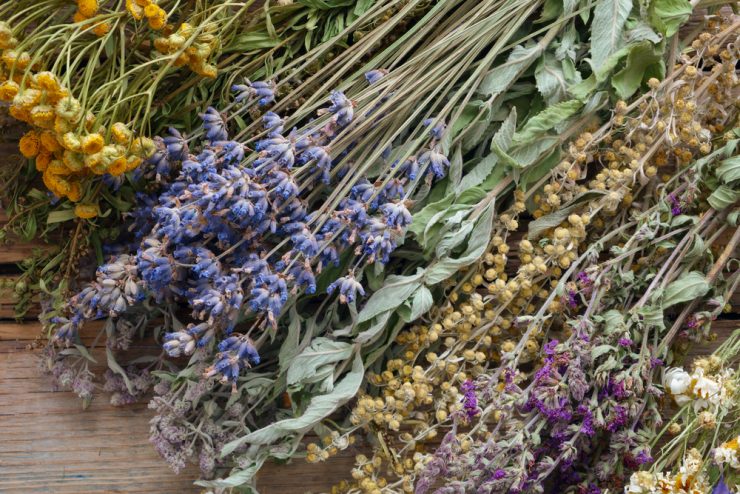To mark Herbal Awareness Week, medical herbalist Gabriella Clarke looks at the history of herbal medicine and the most frequently used herbs today.
Put simply, herbal medicine uses plant extracts to help prevent and treat disease. Medical herbalists study for a degree in herbal medicine and take a more holistic approach to their patients, taking into account a person’s diet and lifestyle habits as well as obtaining a full medical history. They are also trained in pharmaceutical medicine to ensure that any herbal remedies do not adversely interact with any conventional medicine the patient may be taking.
In the last 200 years tradition and science have come together, with scientists using constituents from plant extracts to create powerful drugs, many of which are used today. The powerful painkiller opium comes from from the poppy plant. Aspirin comes from the bark of the white willow tree. Digoxin, extracted from foxgloves, is used for treating heart disease. Vinchristine comes from the periwinkle and is used in chemotherapy – the list is enormous.
With so many medicinal herbs available for a massive range of conditions, it can be difficult to know which herbs you should take for what problem and this is where a herbal medicine practitioner can help.
Here are some of the most commonly recommended and researched herbs and certainly ones that I commonly use in my practice.
The herb of choice for when our immune systems need a boost, especially when the seasons change. Clinical trials have demonstrated that Echinacea can help prevent seasonal flus and viruses and may also shorten the duration of these viruses and help prevent secondary issues such as chest infections.
I see so many people in my clinic with menopausal issues, the most common complaint being hot flushes, which can lead to disturbed sleep patterns as well as interfering with day-to-day quality of life. Sage was originally used to treat fevers because of its anti-diaphoretic properties; that is, it cools the body and prevents sweating. Many women find this herb really effective and it works very quickly; symptoms are often reduced or alleviated within a couple of days.
This fantastic adaptogenic herb has been shown to increase energy and alertness, reduce stress and anxiety and help with insomnia. As with all adaptogens, rhodiola has a balancing effect and is one of the best remedies for treating stress. Russian studies have found it to be both physically and mentally enhancing.
This common, gentle herb can be used to treat anxiety, insomnia and digestive issues. It is also used in teething granules for infants. The tea has a bitter but refreshing flavour and provides gentle effective action. Camomile tablets and tinctures are also available.
This is a great herb for treating liver complaints. Milk thistle is a great choice if you have been over indulging in alcohol and rich foods as it improves sluggish liver function. Among other things, it also helps digestive problems, skin problems and hormonal issues.
One of the best anti inflammatory herbs, turmeric can be used to treat a number of complaints where inflammation is a key issue – from asthma and arthritis to inflammatory bowel disease and skin complaints.
IF YOU’RE UNSURE ALWAY SEEK ADVICE
Herbal medicines are widely available on the market but for more complex issues, or if you are on a lot of medications, it is best to seek the advice of a qualified medical herbalist before taking them.























